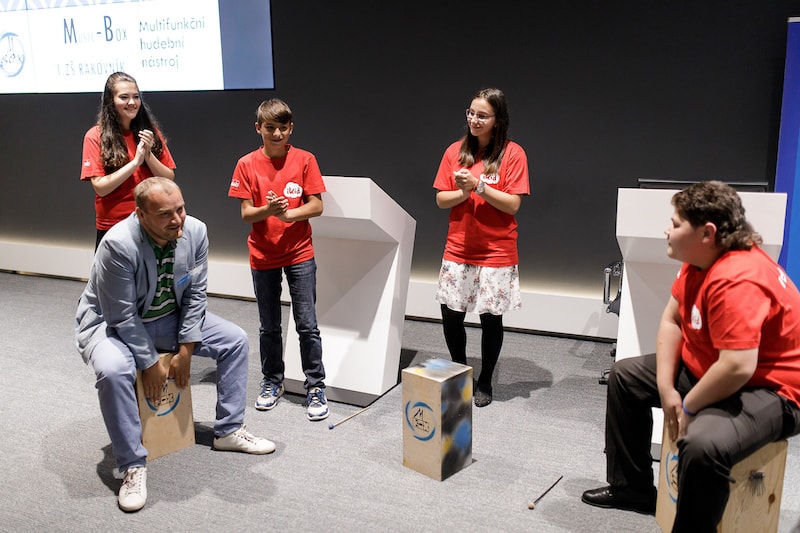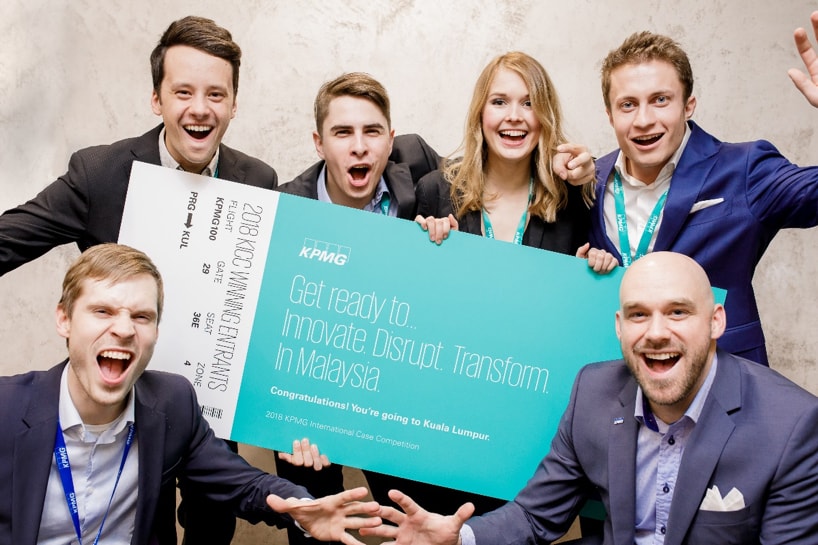We help with what we do best
Promoting responsible and sustainable entrepreneurship, we aim to set an example in the communities in which we operate by focusing on two key areas. We support and develop responsible and sustainable entrepreneurship as well as the involvement of young generations, and we help non-profit organisations and social businesses increase the efficiency of their operations. We thus contribute to societal development through our professional knowledge and skills, while at the same time offering to our employees ample opportunities to further advance their skills.
Path to the sustainability
Utilising our professional knowledge and competences, we accompany non-profit organisations and social businesses on their path towards sustainability. With the expertise of our employees we help several non-profits and social business find new approaches to the resolution of their problems, while at the same time furthering our employees’ know-how and practical experience.
Non-profit organisations and social businesses may take advantage of our expertise on their path towards sustainability by participating in professional training courses and applying for service grants. We aim to react to the current needs of the organisations and adapt our training offers accordingly.
In the upcoming fiscal year, we will introduce an innovation which should make it easier for the involved organisations to sign up for the individual programmes and to gather information about our help for non-profit organisations at a higher level of comfort – our new Cesty k udržitelnosti (path towards sustainability) webpages.
Trainings
Experts from the ranks of our staff offer expert training courses to representatives of non-profit organisations and social businesses within the KPMG Business Institute. The courses focus on audit, tax and legal issues, but also on entrepreneurial thinking and customer relationships.
2016 
During fiscal year 2016, we trained a total of 195 non-profit sector representatives in 9 professional training programmes. Our employees devoted 95 hours of their time to the preparation and leading of educational courses for the non-profit sector.
2017 
During fiscal year 2017, we trained a total of 210 non-profit sector representatives in 10 professional training programmes. Our employees devoted 200 hours of their time to the preparation and leading of educational courses for the non-profit sector.
2018 
In fiscal year 2018, a total of 280 non-profit and social business representatives from 136 individual organisations participated in 11 training courses. Our employees dedicated 199 working hours to preparing and teaching these educational courses for non-profit organisations.
We react to the non-profit sector’s current needs and always try to incorporate feedback from course participants. Hence, every year we adjust the programme as well as the particular focus of our courses. This past year, we twice conducted courses dealing with the GDPR (General Data Protection Regulation) and introduced courses on marketing for non-profit organisations in combination with customer experience management.
Why do our lectors get involved in the courses? What, in their opinion, is their greatest benefit?
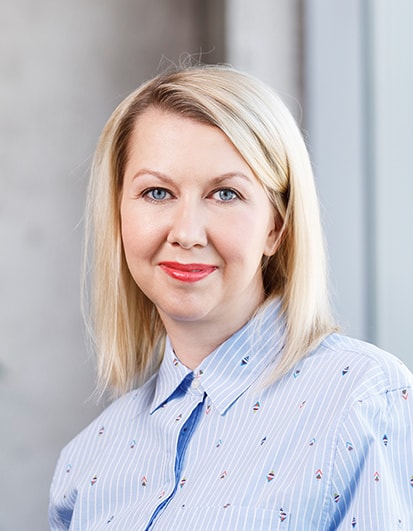
Martina Kopsová (Manager, Risk Consulting)
“What I like the most is that it is not the classic hand-over-a-check kind of help. Within our training programmes, we give non-profits and social businesses the chance to reap multiple benefits from the gathered information and hence receive so much more if they themselves are willing.”
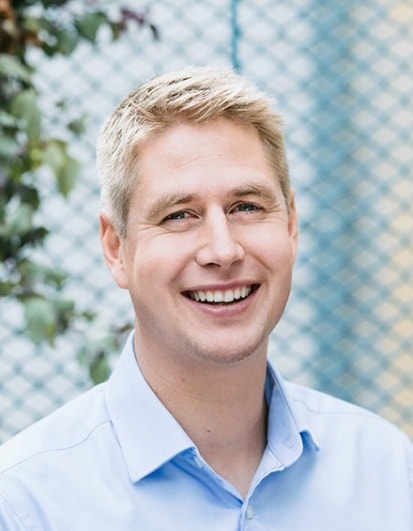
Viktor Dušek (Manager, KPMG Legal)
“Why do I get involved in the non-profit courses year after year? Because it just makes sense on all levels! :-)“
Advisory and pro bono services
With our services we help non-profit organisations achieve higher levels of professionalism and effectiveness. To around 20 organisations, we offer audit services free of charge or for a symbolic fee.
In fiscal year 2017 we provided 1866 hours of work free of charge, in year 2018 it was 2282 hours.
Service grants
Our advisory services aiming to increase the efficient functioning of organisations are in high demand. We have come up with a new opportunity to extend our help to organisations, this time through what we call service grants.
In the past financial year we awarded five service grants to non-profit organisations. Through the grants we are able to provide our commercial services for a symbolic fee to selected non-profit organisations. The services offered through service grants are:
- audits of financial statements
- tax advisory
- advisory pertaining to European funds and subsidies
- legal advisory
- setting up and optimisation of financial processes and reporting.
School of Responsible Business
 With the expert knowledge and skills of our employees we also aim to support and develop social engagement and responsible approaches to entrepreneurship among young people. We are working on the creation and further development of a comprehensive system of projects that on all educational levels will familiarise young people with sustainability and responsible entrepreneurship, develop ideas to resolve pressing social problems, and form upcoming generations. We are therefore cooperating with the Foundation for Education and Entrepreneurship, which has taken the iKid and Compete and Do Business projects under its auspices.
With the expert knowledge and skills of our employees we also aim to support and develop social engagement and responsible approaches to entrepreneurship among young people. We are working on the creation and further development of a comprehensive system of projects that on all educational levels will familiarise young people with sustainability and responsible entrepreneurship, develop ideas to resolve pressing social problems, and form upcoming generations. We are therefore cooperating with the Foundation for Education and Entrepreneurship, which has taken the iKid and Compete and Do Business projects under its auspices.
iKid
iKid, teaching kids how to do business, is an educational project for children aged 10 to 14 years. By participating in the project, children get an idea about how business works and learn what it takes to bring a new product onto the market.
Within the six months of the competition, the young innovators meet ca. once a week with mentors, and in five subsequent steps find out how to bring their own start-up company to life.

Generating ideas

Market search

Creating prototypes

Marketing

Final presentation
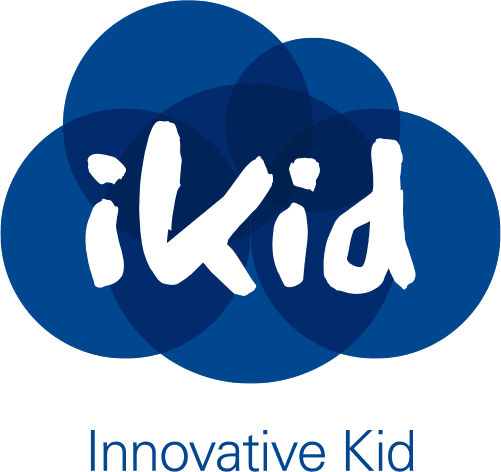
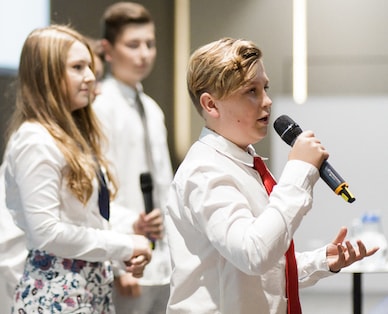
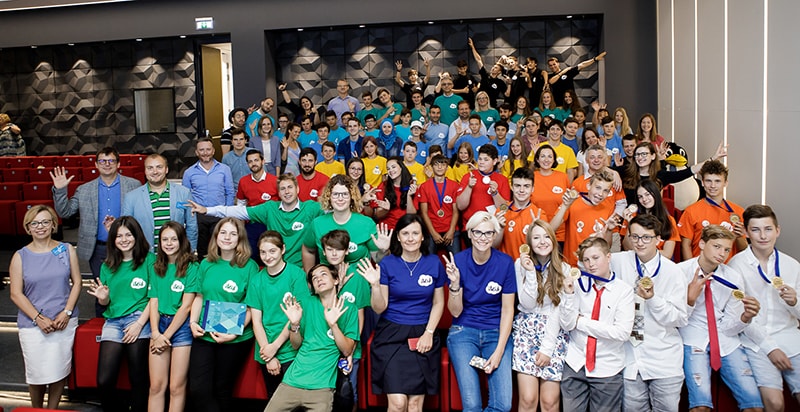
A mentor well versed in the business environment closely works with the children. During the project, the children have the opportunity to participate in workshops with business experts and to go on excursions to interesting companies.
The first year 
- 8 teams,
- 4 schools,
- 46 children,
- 8 functioning prototypes,
- 8 business mentors
The second year 
- 9 teams,
- 7 schools,
- 53 children,
- 9 functioning prototypes,
- 9 business mentors
The third year 
- 10 teams,
- 10 schools,
- 65 children,
- 10 functioning prototypes,
- 10 business mentors
When students teach how to trade shares
Last year, the iKid jury was most impressed by the Pocket Shares project. Students of the EKO Gymnázium in Brno created a web platform making it possible to trade shares while playing a video game. In the game, young shareholders become acquainted with factors that influence the price of shares, thereby expanding their knowledge about the functioning of the economy and improving their financial literacy. iKid’s winning team in 2018 was made up of five classmates working on the project under the leadership of their teacher Sylvie Schmiedová and their mentor Iva Baranová (KPMG Legal). You can find out more about their path to victory here.
“What intrigued me about iKid was the unique method of giving the kids a professional mentor, having them go on excursions, teaching them to take on different roles and responsibilities. I was really amazed how my students were able to present their work. The really gave a lot to this. And our work will definitely go beyond the victory in the competition.”
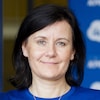 Sylvie Schmiedová
Sylvie SchmiedováEKO Gymnázium Brno
“It was really a great experience. I loved working with talented kids on issues similar to those that we deal with for our clients. The children’s enthusiasm was infectious; I really don’t experience it much in my work with clients. I decided to get involved when I saw last year’s finals; all the involved children were amazing. Working together with their teacher was great, too. I fell that all of us gained something through this project. Our team winning was just the cherry on top.”
 Iva Baranová
Iva BaranováSenior Attorney, KPMG Legal
Second place went to the 1.ZŠ Rakovník, where students designed M-Box, a multifunctional musical instrument that can be used in music education as well as music therapy. Third place was claimed by the team from the ZŠ Gajdošova in Brno and their Child in Us project, which envisions intergenerational meetings between senior citizens and children growing up in children’s homes. Breaking with tradition, the jury also awarded a special price to the Prague ScioSchool and their MyMoz application that is intended to develop the critical thinking of children. The application scored with the jury especially with its highly current area of focus. MyMoz also won in the voting by KPMG employees.
To take a look at the other projects and more detailed information, follow the link here.
KICC
The KPMG International Case Competition, or KICC for short, is an international competition in which university student teams sent out by KPMG member firms showcase their ability to solve the same highly topical case study. The finals of KICC are preceded by two national rounds. In the Czech Republic, the first, preliminary round resulted in 12 teams that then got to compete in the national semi-finals. Here, the students dealt with an actual case study from the world of international business. Their task was to analyse the presented data, prepare a proposal and then present their solution in English to a panel of KPMG experts.
In the semi-finals, the 12 teams attempted to best solve and present a case study dealing with FinTech and big data. The main conditions for winning were a creative and unique solution and its intelligent and innovative presentation in English, all within a tight deadline, as teams had only three hours to analyse and resolve their task. Subsequently, they had to present to a jury acting as clients. The semi-finals served to determine three winning teams who then got to repeat the process in the finals taking place on the same day.
The national finals were thus won by MKsquared, a team of students from the Prague University of Economics. MKsquared subsequently went on to represent the Czech Republic in the international finals in Kuala Lumpur.
From the 22 000 students initially enrolled in KICC, only the 64 best advanced to the international finals, which only serves to further attest the high quality of the finalists.
